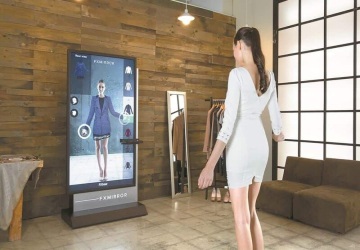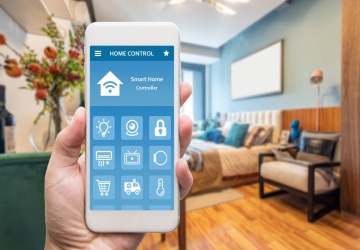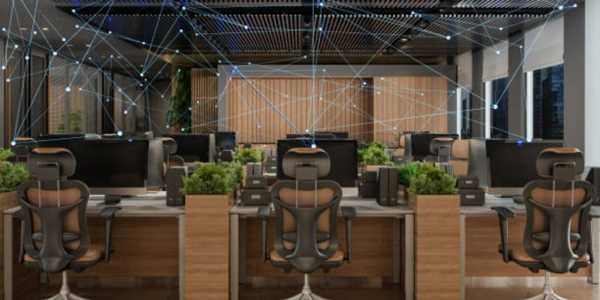The era of technological retail is upon us, and augmented reality (AR) stands at the forefront of this revolution. This innovative blend of the natural and virtual worlds offers a unique avenue for brands to engage with their customers. With the steady rise of AR in interactive retail, businesses are presented with a transformative tool that promises a richer, more immersive customer experience. In the subsequent sections, we dive into the multifaceted world of AR and its application in redefining the shopping landscape.
Understanding Augmented Reality: Beyond the Hype
Augmented reality is a technology that goes beyond traditional digital interaction. Instead of immersing the user in an entirely virtual world, AR superimposes digital elements onto our tangible environment. Through specialized AR devices, or more commonly smartphones and tablets, users can experience these digital integrations in real-time. This immediate interaction in a familiar setting makes AR particularly suited for creating a dynamic and interactive retail environment.
1. Virtual Try-Ons: The Future of Fashion and Accessories
The fitting room experience is poised for a dramatic shift with the integration of augmented reality. Virtual try-ons are the embodiment of this change. Shoppers can now engage with clothing and accessories in a virtual space, visualizing how an item would look on them without physically trying it on. Big and small, brands are leveraging this technology to reduce the barriers between the customer and the product. It offers convenience and empowers the customer, lowering uncertainties linked with online shopping and streamlining the in-store experience.

2. AR-Powered Store Navigation: Guiding the Customer Journey
Stepping into expansive retail environments can sometimes feel like entering a labyrinth. Here, AR plays the role of a digital guide. Through augmented reality, customers can receive real-time directions within a store. This isn't merely about finding products but enhancing the entire in-store journey. With AR markers and indicators, promotions can be highlighted, product information can be detailed, and reviews can be showcased, enriching the shopping experience.
3. Interactive Product Demonstrations: Seeing Is Believing
While numerous factors influence purchasing decisions, understanding a product's functionality is paramount. Here, augmented reality shines by offering interactive product demonstrations. Customers can receive a real-time demo, understand features, and even see use-case scenarios by pointing their device toward a product. This real-time digital assistance not only aids in clearing doubts but also accentuates the product's value proposition.
4. Gamified Shopping Experiences: Engaging the Modern Consumer
Gamification is no longer restricted to mobile apps and websites. The retail space is rapidly leveraging it to engage the tech-savvy modern consumer. Stores can use augmented reality to create intriguing treasure hunts, challenges, or quizzes. Such interactive activities break the monotony of traditional shopping and create a memorable experience. By gamifying the shopping journey, brands can foster loyalty, encourage repeated visits, and build a deeper connection with their customers.

5. Personalized Advertising: Targeted and Engaging
In the world of advertising, personalization is king. With augmented reality, this personalization reaches unprecedented levels. Imagine walking past a store and receiving promotions and offers tailored exclusively for you. This hyper-personalization, made possible by leveraging AR, ensures that brands can communicate more effectively, improving the chances of conversions and deepening customer engagement.
6. Virtual Pop-Up Stores: Bridging Physical and Digital Realms
The capabilities of AR are challenging the conventional concept of what it means for a store to have a physical presence. The idea of pop-up stores may now be seen in a new light thanks to augmented reality. A brand can construct a digital storefront in any location, whether a hectic city square, a peaceful park, or a picturesque beach. These one-of-a-kind interactive retail experiences generate excitement and allow companies to engage with customers in ways that have never been done before.
7. Enhancing Customer Support with AR
Imagine a scenario where customers can utilize their mobile devices to get immediate augmented reality assistance upon facing difficulties with a product. For instance, someone struggling to assemble furniture can use AR to overlay instructional animations directly on the product. This brings a new dimension to customer support, making it more interactive and efficient. By providing real-time, step-by-step guidance, retailers leveraging this potential can dramatically reduce customer frustration and increase brand loyalty.
8. Real-time Customer Reviews and Feedback
One of the pivotal points in a shopper's decision-making process is often the reviews and feedback from other customers. By leveraging augmented reality, stores can display real-time product reviews when customers aim their devices at them. This interactive retail experience ensures shoppers don't need to browse their phones separately to read reviews; they can get them right there, overlaid on the product in question. It streamlines the buying process and increases trust in the product.
9. Immersive Product Stories: Beyond Just Selling
Today's consumers, especially the younger demographic, appreciate brands with a story or a cause. With augmented reality, brands can share their journey, ethos, or sustainability efforts engagingly. Pointing an AR device at a product could showcase how it's made, the community behind it, or its environmental impact. Such immersive stories enrich the customer experience and build a deeper emotional connection with the brand.
10. Streamlining Inventory Management for Retailers
Augmented reality isn't just about enhancing the consumer experience; it also has backend benefits for retailers. Leveraging AR for inventory management can revolutionize the way stores handle stock. Using AR glasses, staff can quickly locate items in a storeroom, check real-time stock levels, and even predict stock requirements based on historical data visualized through AR. This streamlining can drastically reduce inefficiencies, ensuring better stock management and lesser wastage.
Conclusion: Augmented Reality - A Game Changer for Interactive Retail
As we progress into the 21st century, augmented reality will undoubtedly cement its position as a linchpin in interactive retail. For businesses, the message is clear: adapt and leverage, or risk being left behind. AR offers the dual advantage of enhancing customer experience while driving operational efficiencies in an ever-competitive retail landscape. Embracing AR is not merely about keeping pace with technology; it's about heralding a future where shopping is redefined, immersive, and endlessly exciting.

















